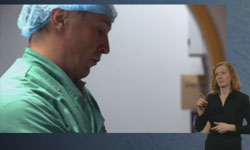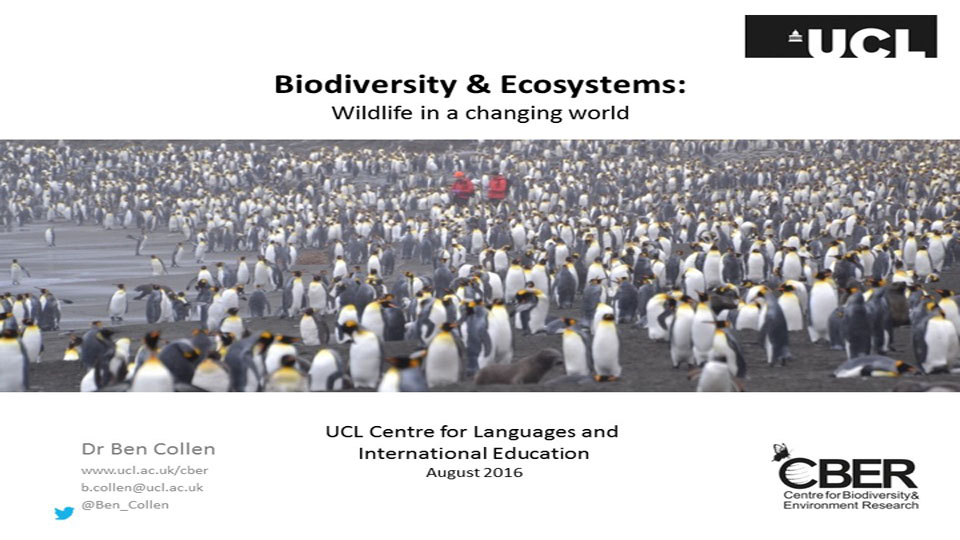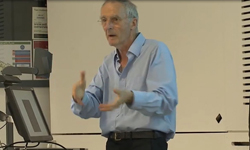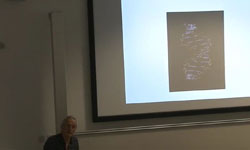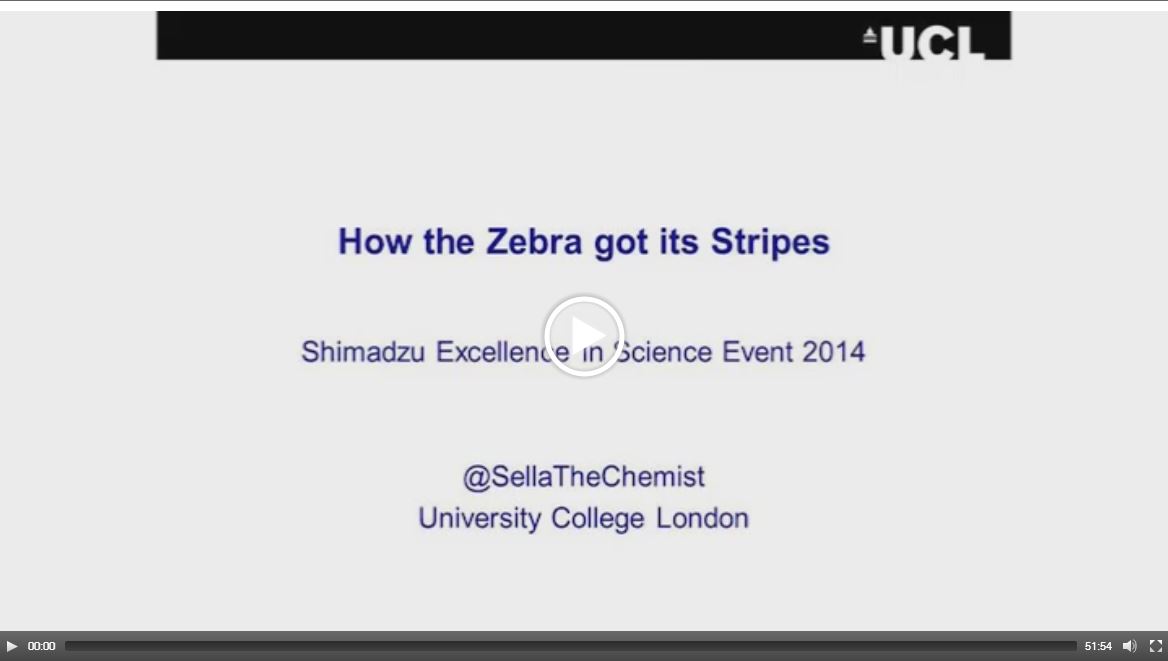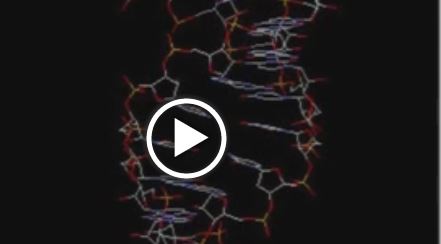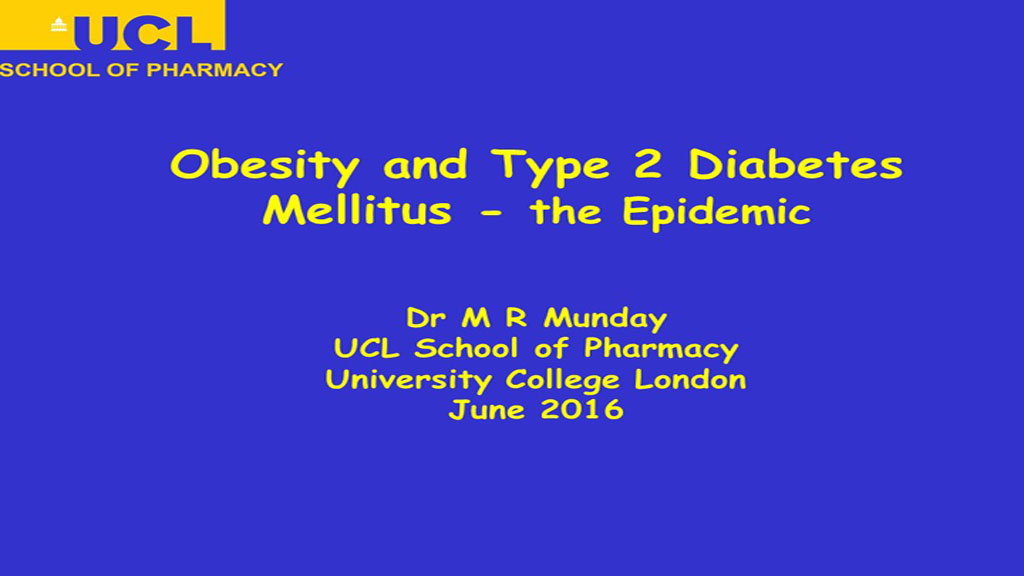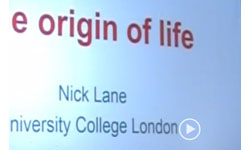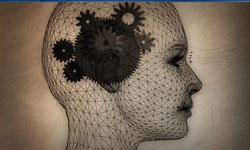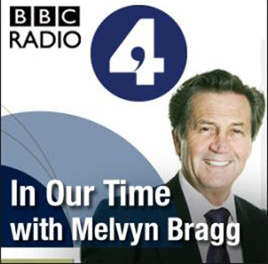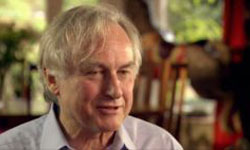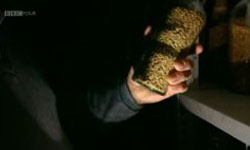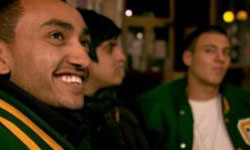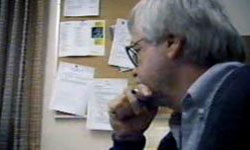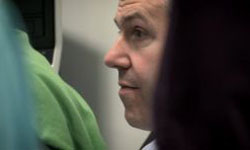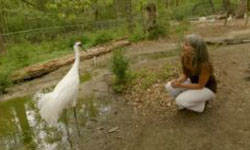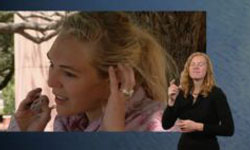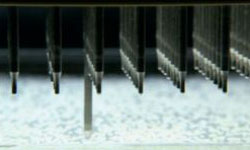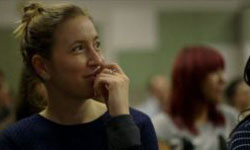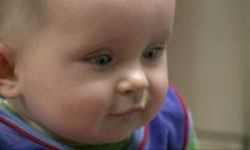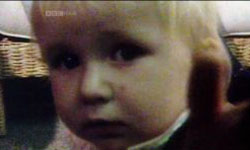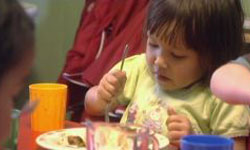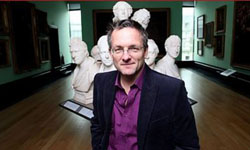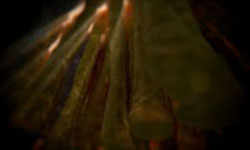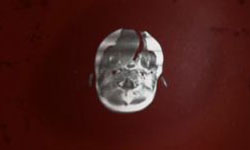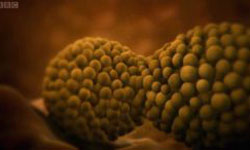Select one or more of these popular tags:
A decade ago, scientists announced that they had produced the first draft of the human genome, the 3.6 billion letters of our genetic code.It was seen as one of the greatest scientific achievements of our age, a breakthrough that would usher in a new age of medicine. A decade later, Horizon finds out how close we are to developing the life-changing treatments that were hoped for.
- British-Sign-Language
- Genetics
- No subtitles
- 59
A decade ago, scientists announced that they had produced the first draft of the human genome, the 3.6 billion letters of our genetic code.It was seen as one of the greatest scientific achievements of our age, a breakthrough that would usher in a new age of medicine. A decade later, Horizon finds out how close we are to developing the life-changing treatments that were hoped for.
-
Biodiversity and Ecosystems: Wildlife in a Changing World
-
Dr Ben Collen , 2016
Pre-sessional lecture August 2016
- Lectures
- No subtitles
- 43
Pre-sessional lecture August 2016
-
Genetics 2018
-
Professor Steve Jones , 2018
Pre-Sessional Lecture 15.05.2018
- Lectures
- No subtitles
- 57
Pre-Sessional Lecture 15.05.2018
-
How the Zebra Got its Stripes
-
Prof. Andrea Sella , 2014
Pre-sessional Lecture 8th July 2014
Pre-sessional Lecture 8th July 2014
-
Nature, Nurture, or Neither?
-
Prof. Steve Jones , 2010
Diploma 2010/11
- Lectures
- Biology
- General Science
- Lectures
- No subtitles
- 50
Diploma 2010/11
-
Obesity and Type 2 Diabetes
-
Dr Michael Munday , 2016
Pre-sessional lecture 15/06/2016
- Lectures
- No subtitles
- 58
Pre-sessional lecture 15/06/2016
-
The Origin of Life
-
Professor Nick Lane , 2017
Pre-sessional lecture 15.08.17
- Lectures
- No subtitles
- 51
Pre-sessional lecture 15.08.17
-
Aping Evolution - 1
-
Professor Steve Jones
Professor of Genetics Steve Jones challenges evolutionary psychology, the controversial new science of how our brains and minds developed.
Professor of Genetics Steve Jones challenges evolutionary psychology, the controversial new science of how our brains and minds developed.
-
Aping Evolution - 2
-
Professor Steve Jones
Professor of Genetics Steve Jones challenges the controversial science of evolutionary psychology. Evolutionary psychologists say human behaviour, such as who we marry, when we have children and even the quality of our sex lives, can be explained by having a Stone Age brain in a 21st century body. Professor Jones examines the scientific evidence for such claims and asks if we should be worried if contentious theories escape the world of science and enter the arena of social policy.
Professor of Genetics Steve Jones challenges the controversial science of evolutionary psychology. Evolutionary psychologists say human behaviour, such as who we marry, when we have children and even the quality of our sex lives, can be explained by having a Stone Age brain in a 21st century body. Professor Jones examines the scientific evidence for such claims and asks if we should be worried if contentious theories escape the world of science and enter the arena of social policy.
-
In Our Time - Genetic Engineering
-
Melvyn Bragg
Melvyn Bragg and guests discuss the implications of the developments in genetic engineering. With Grahame Bulfield, geneticist, honorary professor, Edinburgh University and Director of the Roslin Institute, Edinburgh; Bryan Appleyard, features writer for The Sunday Times and author of Brave New Worlds: Genetics and the Human Experience.
Melvyn Bragg and guests discuss the implications of the developments in genetic engineering. With Grahame Bulfield, geneticist, honorary professor, Edinburgh University and Director of the Roslin Institute, Edinburgh; Bryan Appleyard, features writer for The Sunday Times and author of Brave New Worlds: Genetics and the Human Experience.
Professor Richard Dawkins reveals how he came to write his explosive first book The Selfish Gene, a work that was to divide the scientific community and make him the most influential evolutionary biologist of his generation. He also explores how this set him on the path to becoming an outspoken spokesman for atheism.
- TV-Recordings
- Biology
- TV-Recordings
- No subtitles
- 60
Professor Richard Dawkins reveals how he came to write his explosive first book The Selfish Gene, a work that was to divide the scientific community and make him the most influential evolutionary biologist of his generation. He also explores how this set him on the path to becoming an outspoken spokesman for atheism.
For 10,000 years or more, humans created new plant varieties for food by trial and error and a touch of serendipity. Then 150 years ago, a new era began. Pioneer botanists unlocked the patterns found in different types of plants and opened the door to a new branch of science - plant genetics. They discovered what controlled the random colours of snapdragon petals and the strange colours found in wild maize.
- TV-Recordings
- Biology
- TV-Recordings
- No subtitles
- 60
For 10,000 years or more, humans created new plant varieties for food by trial and error and a touch of serendipity. Then 150 years ago, a new era began. Pioneer botanists unlocked the patterns found in different types of plants and opened the door to a new branch of science - plant genetics. They discovered what controlled the random colours of snapdragon petals and the strange colours found in wild maize.
Dr Alice Roberts asks one of the great questions about our species: are we still evolving? Alice follows a trail of clues from ancient human bones, to studies of remarkable people living in the most inhospitable parts of the planet, to the frontiers of genetic research to discover if we are still evolving - and where we might be heading.
- TV-Recordings
- Anthropology
- TV-Recordings
- English subtitles
- 60
Dr Alice Roberts asks one of the great questions about our species: are we still evolving? Alice follows a trail of clues from ancient human bones, to studies of remarkable people living in the most inhospitable parts of the planet, to the frontiers of genetic research to discover if we are still evolving - and where we might be heading.
What makes us good or evil? It's a simple but deeply unsettling question. One that scientists are now starting to answer.
- TV-Recordings
- Biology
- Humanities
- TV-Recordings
- English subtitles
- 60
What makes us good or evil? It's a simple but deeply unsettling question. One that scientists are now starting to answer.
The film follows Rosemary, Phil and Ray as they undergo remarkable new treatments - from a billion pound genetically targeted drug designed to fight a type of skin cancer, to advanced robotic surgery.
- TV-Recordings
- Medical Sciences
- TV-Recordings
- No subtitles
- 60
The film follows Rosemary, Phil and Ray as they undergo remarkable new treatments - from a billion pound genetically targeted drug designed to fight a type of skin cancer, to advanced robotic surgery.
The hunt for life within the long-dead bones of dinosaurs may sound like the stuff of Hollywood fantasy - but one woman has found traces of life within the fossilised bones of a T Rex.
- TV-Recordings
- Genetics
- English subtitles
- 60
The hunt for life within the long-dead bones of dinosaurs may sound like the stuff of Hollywood fantasy - but one woman has found traces of life within the fossilised bones of a T Rex.
-
Horizon - Fix Me
-
BBC
Horizon follows the emotional journey of three young people with currently untreatable conditions to see if, within their lifetime, they can be cured.
- TV-Recordings
- Medical Sciences
- TV-Recordings
- No subtitles
- 60
Horizon follows the emotional journey of three young people with currently untreatable conditions to see if, within their lifetime, they can be cured.
-
Horizon - Playing God
-
BBC 2
Adam Rutherford meets a new creature created by American scientists - the spider-goat. It is part goat, part spider, and its milk can be used to create artificial spider\'s web.
- TV-Recordings
- Biology
- TV-Recordings
- No subtitles
- 60
Adam Rutherford meets a new creature created by American scientists - the spider-goat. It is part goat, part spider, and its milk can be used to create artificial spider\'s web.
Michael Mosley explores the latest science about how our personalities are created - and whether they can be changed.
- TV-Recordings
- Genetics
- English subtitles
- 60
Michael Mosley explores the latest science about how our personalities are created - and whether they can be changed.
Could you have come up with Einstein\'s theory of relativity? If not - why not?
- TV-Recordings
- Medical Sciences
- TV-Recordings
- No subtitles
- 60
Could you have come up with Einstein\'s theory of relativity? If not - why not?
Dallas Campbell delves into the Horizon archive to discover how our understanding of intelligence has transformed over the last century. From early caveman thinkers to computers doing the thinking for us, he discovers the best ways of testing how clever we are - and enhancing it.
- TV-Recordings
- Medical Sciences
- TV-Recordings
- No subtitles
- 60
Dallas Campbell delves into the Horizon archive to discover how our understanding of intelligence has transformed over the last century. From early caveman thinkers to computers doing the thinking for us, he discovers the best ways of testing how clever we are - and enhancing it.
Professor Alice Roberts is making a new human being - she is pregnant with her second child. But before he is born, she wants to find out what makes a human, human? What is that separates us from our closest living relatives - the chimpanzees?
- TV-Recordings
- Genetics
- English subtitles
- 60
Professor Alice Roberts is making a new human being - she is pregnant with her second child. But before he is born, she wants to find out what makes a human, human? What is that separates us from our closest living relatives - the chimpanzees?
The world is affected by an obesity epidemic, but why is it that not everyone is succumbing? Medical science has been obsessed with this subject and is coming up with some unexpected answers. As it turns out, it is not all about exercise and diet. At the centre of this programme is a controversial overeating experiment that aims to identify exactly what it is about some people that makes it hard for them to bulk up.
- TV-Recordings
- Humanities
- Medical Sciences
- TV-Recordings
- No subtitles
- 59
The world is affected by an obesity epidemic, but why is it that not everyone is succumbing? Medical science has been obsessed with this subject and is coming up with some unexpected answers. As it turns out, it is not all about exercise and diet. At the centre of this programme is a controversial overeating experiment that aims to identify exactly what it is about some people that makes it hard for them to bulk up.
Professor Robert Winston presents his top ten scientific breakthroughs of the past 50 years. Tracing these momentous and wide-ranging discoveries, he meets a real-life bionic woman, one of the first couples to test the male contraceptive pill, and even some of his early IVF patients. He explores the origins of the universe, probes the inner workings of the human mind and sees the most powerful laser in the world.
- TV-Recordings
- Medical Sciences
- Physics
- TV-Recordings
- No subtitles
- 60
Professor Robert Winston presents his top ten scientific breakthroughs of the past 50 years. Tracing these momentous and wide-ranging discoveries, he meets a real-life bionic woman, one of the first couples to test the male contraceptive pill, and even some of his early IVF patients. He explores the origins of the universe, probes the inner workings of the human mind and sees the most powerful laser in the world.
-
Inside the Human Body
-
BBC
Using spectacular graphics based on the latest science and stories of remarkable people around the world, Michael Mosley takes us on a fantastic voyage through our inner universe.
- TV-Recordings
- No subtitles
- 300
Using spectacular graphics based on the latest science and stories of remarkable people around the world, Michael Mosley takes us on a fantastic voyage through our inner universe.
In a special episode of Inside The Human Body, all the family can join Michael Mosley as he takes us on a fantastic voyage through the wonders of the human body. Using state-of-the-art graphics, based on real images and scientific research, he reveals the ingenious inner workings of your body, starting with the extraordinary story of how a sperm and egg fuse to create life.
- TV-Recordings
- Biology
- Medical Sciences
- TV-Recordings
- No subtitles
- 60
In a special episode of Inside The Human Body, all the family can join Michael Mosley as he takes us on a fantastic voyage through the wonders of the human body. Using state-of-the-art graphics, based on real images and scientific research, he reveals the ingenious inner workings of your body, starting with the extraordinary story of how a sperm and egg fuse to create life.
In this episode, Michael Mosley traces our development from birth to adulthood, and reveals that the human brain is so sophisticated it takes more than twenty years to mature.
- TV-Recordings
- Biology
- Medical Sciences
- TV-Recordings
- No subtitles
- 60
In this episode, Michael Mosley traces our development from birth to adulthood, and reveals that the human brain is so sophisticated it takes more than twenty years to mature.
Series exploring the wonders of the human body. Using spectacular graphics based on real images and the latest scientific research, Michael Mosley takes viewers on a voyage through the workings of the inner human universe.
- TV-Recordings
- Biology
- Medical Sciences
- TV-Recordings
- No subtitles
- 60
Series exploring the wonders of the human body. Using spectacular graphics based on real images and the latest scientific research, Michael Mosley takes viewers on a voyage through the workings of the inner human universe.

